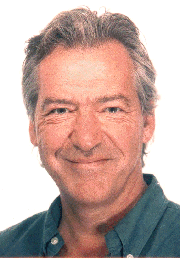SUBUD VISIONAuthor:Dirk Campbell |
|

|
Mini BiographyDirk Campbell was born in Ismailia, Egypt in 1950 and lived in Kenya till the age of 11 when the family moved to England. Interest in spiritual matters began during the hippy years of the late 60s. He was introduced to many spiritual presentations including those of Hindu mysticism, Zen Buddhism, Subud, Gurdjieff and Sufism via Idries Shah. At the idealistic age of 18 all these things were fascinating. appearing suffused with a golden, romantic and otherworldly light. He chose to join Subud but retained his interest in other presentations. Worked as a graphic designer during his first marriage from 1974 to 1985, then as a composer during his second, more successful, marriage from 1989 to the present day. During this time, disaffected with Subud, he applied to and was accepted by one of the Shah groups. At the same time he and his wife Adrienne became increasingly acquainted with modern psychotherapy, particularly the Psychology of Vision model. Returned to the latihan in 2006 after a five-year absence and continues to use Psychology of Vision principles. At the present time he and his wife are involved with the rather urgent problem of effecting a localised transition to a post-carbon economy. Current beliefs: none. God, if he exists, certainly has no emotional attachment to life on earth. Endowing human beings with the brains to develop a culture of heedless exploitation and growth gave us the means of wiping ourselves out and most of life on earth along with us. I?d much prefer a female God if one were available. |
Subud and Psychology pdf, htmlMany spiritual practices take us out of the everyday state into a transcendent state which may seem to offer solutions to everyday problems. Bapak referred to this when he said that from the point of view of the kejiwaan everything looks wonderful, because the kejiwaan is like that; whereas it should be the ?heart and mind? that we use to solve our everyday problems. While this may be true in some cases, we unfortunately have many chronic problems that cannot be solved by the use of the ?heart and mind?: relationship issues, work issues, sexual issues, anxiety, resentment, betrayal, anger, violence, unfulfilled needs, power struggles, compulsions, addictions ? the list is long. From the point of view of the Subud model this is all caused by ?lower forces? operating through the nafsu and these problems can be transformed by doing the latihan. This is an optimistic claim, to say the least. In my experience, doing the latihan is at best a rather slow and unreliable method of achieving such transformation. At worst it has little effect at all, and the latihan state becomes merely a temporary respite from a painful world. After 37 years of Subud, I can state with confidence that some of the claims of Subud are at variance with the evidence. Bapak frequently said that doing the latihan would make us healthy in body and mind. In 1972 one helper even told me that ?if a person could surrender completely, everything would come right for him.? Well, perhaps. As far as I know there has been no such person yet. Subud and Psychology makes the point that there are other, perhaps more effective, ways to become ?healthy in body and mind?. Modern psychology uses problems as the gateway to transformation on the principle that the trauma hides the gift. In particular it shows up guilt for what it is: a very powerful way of staying stuck that is so deep-seated that it is often unperceived. By bringing my hidden feelings to the surface and helping me to engage honestly and fearlessly with them, modern psychology has shown me the way out of my traps so that I could actually begin to move forward in these areas. If you lost your donkey in Khorasan Why are you looking for it in Yazd and Rai? - Shabistari Sufism and Subud pdf, htmlWhat does Subud owe to Sufism? Feedback on Dirk's articlesTo send feedback on an article, please click on the button, next to the article synopsis, that says "Send Feedback on this article". |